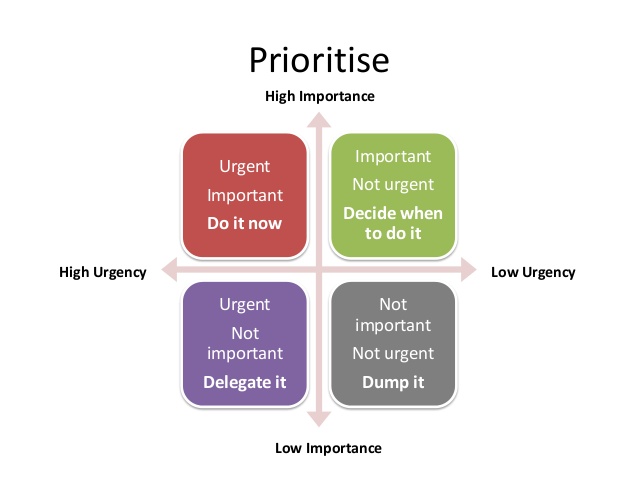
1. Set goals.
Ask yourself which goals are important to you right now and what needs to be done to achieve them. These objectives should be realistic and measurable. If you’re shooting for a company management position, start by breaking down this goal into several concrete actions spread out over time.
For example:
Rewrite CV
Register for management classes
Attend a networking event
Apply to become a board member
Don’t forget to reward yourself when you have reached your goals!
2. Make a to-do list.
Don’t try to memorize your schedule: you run the risk of forgetting appointments or missing deadlines! Use apps such as Google Calendar, Todoist or Evernote to manage your lists. Some people use a colour-coded system or letters to rank their tasks. Once again, make sure that your tasks are specific and concrete.
3. Turn your goals into habits.
To develop a habit, repeat the same tasks every day, at the same time in and the same place. For example, if you want to improve your writing skills, set yourself the goal of reading every night before going to bed and writing for 30 minutes at lunchtime.
4. Prioritize.
Use the Eisenhower matrix to categorize your tasks according to degree of urgency and importance.
Important and urgent tasks: do right away.
Important but non-urgent tasks: see if you can push them back or delegate them.
Unimportant and urgent tasks: do them or delegate them right away.
Useless and non-urgent tasks: forget about them.
5. Delegate when necessary.
You have to be able to recognize when you have too much on your plate. Learn to say “no” and delegate your tasks. This can take a good dose of humility, but you’ll have a higher-quality final result.
6. Calculate the time spent on each of your tasks.
Using a calendar or planner, evaluate how your time is spent over the course of the day. You may realize that your time is well spent—or not. First, draw up a timetable divided by the half hour, from morning until bedtime. Complete this exercise during a normal week. Write down what you do during each half-hour slot. You will then be able to plan a schedule based on your conclusions.
7. Avoid distractions.
Stack the cards in your favour. Focus your energy so that you can reach a state of undivided attention. Turn off your phone and sign out of your sessions on social media if you need to.
8. Take breaks often.
After working intently on a task for an hour, take a break to clear your mind.
9. Avoid procrastinating.
Some people work well under pressure on last-minute projects. Stress motivates them to be more productive. Procrastinators often feel that once they’ve started something, they have to finish it, which is what compels them to put it off. To make sure you meet your deadlines, trick your brain by creating short-term deadlines and give yourself short periods of time to complete your tasks.
10. Don’t give up and stay motivated.
As you move through your career, you will most likely measure yourself in terms of the significant and difficult challenges that you take on. It’s important to maintain a positive attitude even when faced with frustration or failure. Try to take away something positive from each of your experiences.






